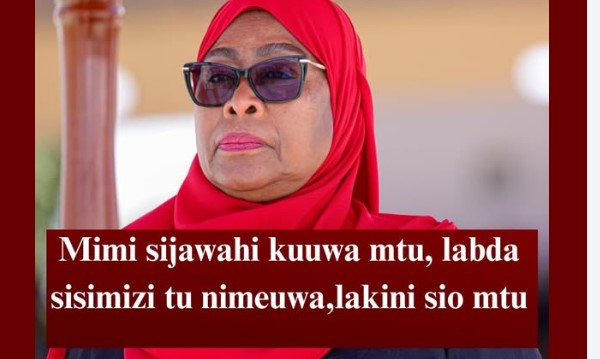Tanzanian President Samia Suluhu Hassan has stirred conversation across East Africa after strongly defending herself against accusations and political attacks that have increasingly targeted her administration. Speaking with a mix of firmness and humor, she stated: “Mimi sijawahi kuua mtu, labda sisimizi tu nimeua, lakini sio mtu.”
(“I have never killed anyone — maybe only an ant, but not a human being.”)
The statement, though light in tone, carries weight in the charged political climate of Tanzania. It reflects a leader under scrutiny, responding to critics who have attempted to portray her as either too soft, too compromising, or, in more extreme cases, responsible for decisions with life-and-death implications. Her choice of words shows a strategic blend of seriousness and disarming humor — a communication style Samia has increasingly mastered.
In East African politics, where power is often asserted through harsh rhetoric and confrontational declarations, Samia’s approach stands out. By downplaying the accusation with wit, she reframes the narrative without escalating hostility. She positions herself as a leader who believes in dialogue, not violence; in consensus-building, not coercion. The metaphor of “an ant” serves not just as comic relief, but as a symbolic rejection of the harsh political labels that opponents have tried to impose on her.
Her statement also highlights the pressures facing female leaders in patriarchal political environments. Women in high office are often subjected to exaggerated scrutiny, baseless allegations, and double standards. Samia’s defense can therefore be read as more than personal — it is a stand against the narrative that strong leadership must be associated with brutality or force.
Moreover, Samia is navigating a complex political terrain. Since taking over after the late President John Magufuli, she has attempted to open up political space, reconcile with opposition figures, and rebuild relationships with the international community. These changes have invited both praise and criticism. To some, she is a reformer; to others, she is moving too fast or too softly. Her statement captures that tension — a leader trying to balance legacy, reform, pressure, and public expectations.
By declaring she has never harmed anyone, Samia is also reminding citizens of her leadership style: calm, maternal, diplomatic, yet firm when necessary. It is a style that has slowly redefined Tanzania’s political tone.
In the end, her remark is not merely a denial — it is a declaration of identity. Samia is signaling that she intends to lead with peace, humanity, and transparency, not fear or intimidation. She refuses to embrace the narratives pushed by her critics, choosing instead to define herself on her own terms.



